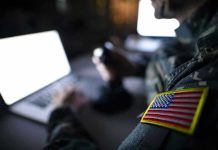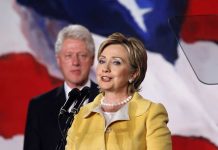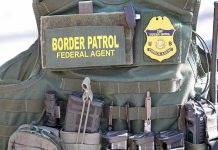
America’s nuclear policy just lurched from silence to sirens: President Trump has ordered the immediate testing of the U.S. nuclear arsenal, upending decades of strategic ambiguity and setting off alarms at home and abroad.
Quick Take
- Trump directs rapid resumption of American nuclear weapons testing after years of dormancy.
- The decision shocks military analysts and provokes fierce debate in Congress.
- Allies and rivals scramble to interpret the move’s implications for global security.
- The announcement rekindles questions about U.S. leadership and the future of nuclear deterrence.
Trump’s Nuclear Testing Order Shatters Decades of Precedent
President Trump’s sudden directive for immediate nuclear weapons testing marks a seismic break from established U.S. policy. Since the end of the Cold War, American leaders—Republican and Democrat alike—have tiptoed around the notion of live nuclear tests, treating them as a provocative relic best left in the past. The United States last detonated a nuclear device underground in 1992, and while laboratory simulations and subcritical experiments continued, actual tests became taboo, both domestically and internationally.
Trump’s order exploded onto the scene with little warning, citing “other countries’ testing programs” as justification for the move. Military officials and diplomats scrambled for clarity. Was this saber-rattling, a negotiating tactic, or the first notes of a new nuclear arms race? The answer, it seems, is all of the above—at least for now.
Capitol Hill Reacts: Division and Alarm
Congressional reaction split along familiar lines. Republican lawmakers, especially those from states housing major nuclear laboratories, hailed the decision as overdue—a necessary signal to adversaries and an overdue investment in the nation’s ultimate deterrent. Democrats recoiled, warning that new tests could unravel international nonproliferation efforts and spark a global cascade of nuclear brinkmanship. Behind closed doors, career defense officials expressed unease about the strategic and environmental consequences of resuming tests, even as they prepared to follow presidential orders.
The debate reached fever pitch in the halls of Congress, with seasoned arms control advocates warning that a single U.S. test could unravel decades of painstakingly woven treaties and informal agreements. Some hawks, meanwhile, argued that American restraint had only emboldened rivals to cheat, citing recent intelligence about clandestine tests by competitor states. The divide is sharp, and voices on both sides are bracing for a long policy battle.
International Fallout: Allies Worry, Rivals Calculate
America’s closest allies in Europe and Asia, long shielded by the U.S. nuclear umbrella, privately expressed alarm. For decades, their security calculations relied on American predictability and the force of international norms. Trump’s announcement rattled those assumptions, forcing allied governments to confront unsettling questions: Will the U.S. commitment hold steady, or is it veering into unpredictable new territory? Meanwhile, rival powers interpreted the move as both a challenge and an opportunity—an invitation to accelerate their own programs or to portray the U.S. as a destabilizing force on the world stage.
Diplomatic channels lit up as envoys sought clarification and reassurance. Could the U.S. still be trusted as a steward of the global nuclear order, or was it now the disruptor-in-chief? The answers may depend on how quickly, and how publicly, the Pentagon acts on Trump’s directive—and whether other nations follow suit.
Strategic Uncertainty and the Future of Deterrence
The return to nuclear testing throws decades of American strategy into doubt. For years, the U.S. relied on a combination of technological sophistication and treaty commitments to keep its arsenal credible and its adversaries guessing. Trump’s decision resets the board. Experts warn that even a single test could trigger reciprocal moves by rivals and erode the taboos that have kept nuclear weapons locked in their silos. Others counter that only by demonstrating capability can deterrence remain effective in a world where competitors are no longer playing by old rules.
The coming months will reveal whether this gambit strengthens American security or ignites a global arms race. One thing is clear: the era of nuclear ambiguity is over, and the world is watching to see what detonates next.
Sources:
Resuming nuclear testing is not as easy as you think


















